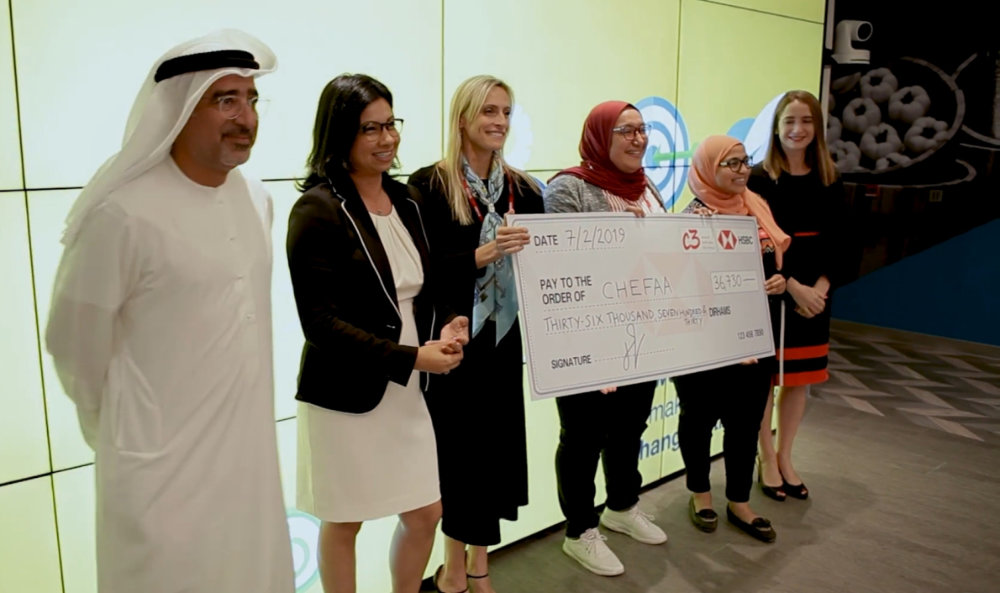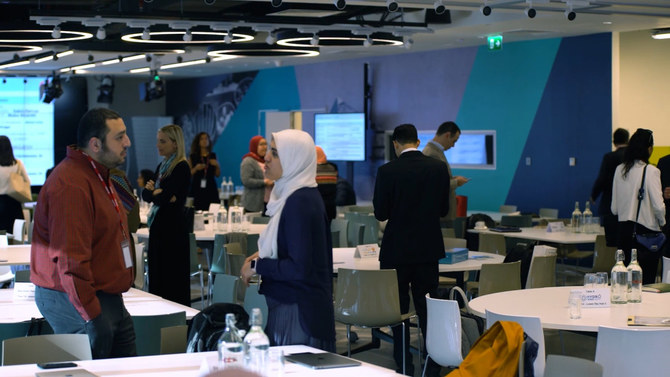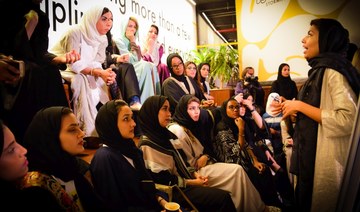DUBAI: Throughout the Middle East and the world, social enterprises have been among the first to respond to the significant challenges posed by the coronavirus disease (COVID-19) pandemic.
In Tunisia, the Banque Alimentaire Durable dispensed food aid to needy families during the month of Ramadan and beyond, while in Lebanon, the non-governmental organization Abaad fielded nearly twice as many calls on its domestic abuse helpline in the first four months of the year than it did over the whole of 2019.
This ability to deliver emergency relief to areas underserved by governments and the market could see investment in social enterprises remain relatively steady and perhaps even grow, a June survey by New York-based Global Impact Investing Network (GIIN) revealed.
Impact investment, valued at $715 billion worldwide, is defined as the funding of projects that generate a positive social or environmental outcome.

C3 runs accelerator programs on sustainability in 11 countries across the Middle East, North Africa, and Turkey. (Supplied)
The GIIN survey, which polled 294 leading investors with $404 billion of impact investment assets, saw the majority (73 percent) say they would maintain or increase their planned outlay for 2020.
“COVID-19 has increased the need for impact investment and augmented investors’ interest in impact-driven firms,” said Medea Nocentini, co-founder and CEO of C3 (Companies Creating Change).
“Most social enterprises not only survived during the COVID-19 pandemic but also thrived. This proves that companies creating change are the future.”
C3 runs accelerator programs on sustainability in 11 countries throughout the Middle East, North Africa, and Turkey (MENAT). It aims to help entrepreneurs working toward realizing at least one of the UN Sustainable Development Goals (SDGs) to maximize their social impact and ensure their financial stability.

Medea Nocentini, co-founder and CEO of C3
Nocentini noted that there had been an increased interest in regional companies creating a positive impact and a better understanding of their business models.
“Investors used to view these companies as small initiatives or non-profit organizations. However, the pandemic made them realize that companies who are seeking to create a positive impact are scalable, sustainable, resilient, and indeed investable,” she added.
Startups that sit at the intersection of technology, development, and social impact could benefit from this increased interest, particularly healthtech, edutech, and agritech within the MENAT region.
IN NUMBER
10,000 - Saudis for whom there is one non-profit social organization.
As the co-founder and CEO of Nabta Health — a hybrid healthcare company focused on diagnosing underlying health conditions in women — Sophie Smith has noted an increased interest since the COVID-19 outbreak.
“Until COVID-19, there was little or no interest among Middle Eastern venture capital firms to invest in life sciences and healthcare. Today, we see several of the big venture capitalists (VCs) pivoting away from e-commerce, marketplaces, logistics, and fintech (financial technology) to focus almost exclusively on healthtech,” she said.
“VCs are recognizing the need to invest in accessible and affordable healthcare for people across the region, to enhance overall population health and protect against future pandemics.”
The general consensus among social impact companies, she added, was that the COVID-19 pandemic had made it easier to attract investment, not the other way round.

Sophie Smith, co-founder and CEO of Nabta Health
“The closing of borders and suspension of trade has made governments realize the importance of building local, sustainable businesses, with a particular focus on food and population health security. This is good news for social impact companies that nearly always have a sustainability mandate and a desire to uplift the local community,” Smith said.
Beyond their micro-level impact, social enterprises could also play a larger, national role. For example, financially sustainable social enterprises in Saudi Arabia could contribute an additional 2.5 percent to gross domestic product (GDP) per year and create more than 250,000 jobs by 2030, according to September estimates from PwC. By contrast, in the UK, the sector accounts for 3 percent of GDP.
At present, there is just one non-profit social organization for every 10,000 people in Saudi Arabia, compared to about 50 in Canada and the US, and 200 in France, PwC said. The consultancy sees social enterprises as a promising way to help the Kingdom achieve the ambitious economic transformation outlined in its Vision 2030 development plan.
Whether in Saudi Arabia or elsewhere, impact investing can lead to a more equitable distribution of resources, while generating social, environmental, and economic returns.
• The Middle East Exchange is one of the Mohammed bin Rashid Al-Maktoum Global Initiatives that was launched to reflect the vision of the UAE prime minister and ruler of Dubai in the field of humanitarian and global development, to explore the possibility of changing the status of the Arab region. The initiative offers the press a series of articles on issues affecting Arab societies.




























